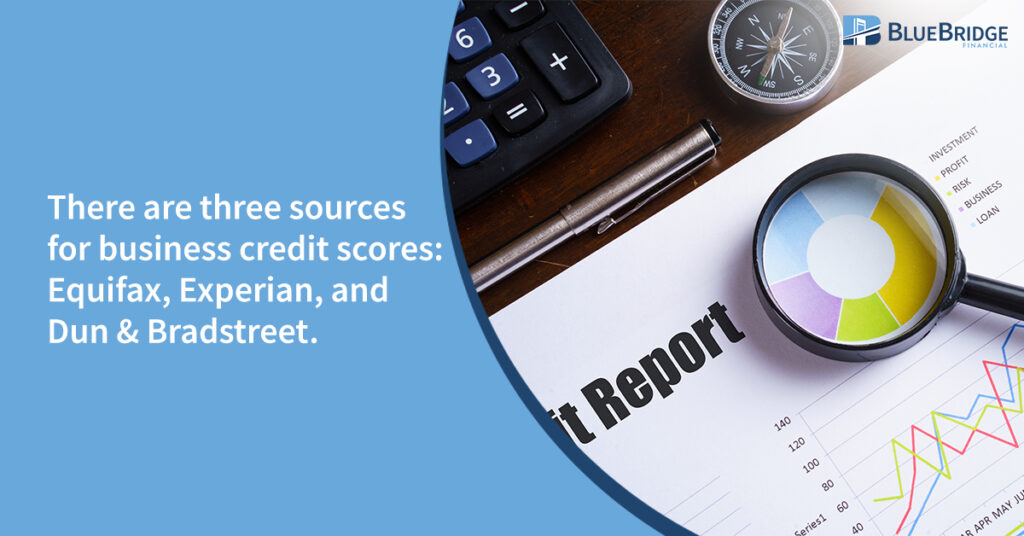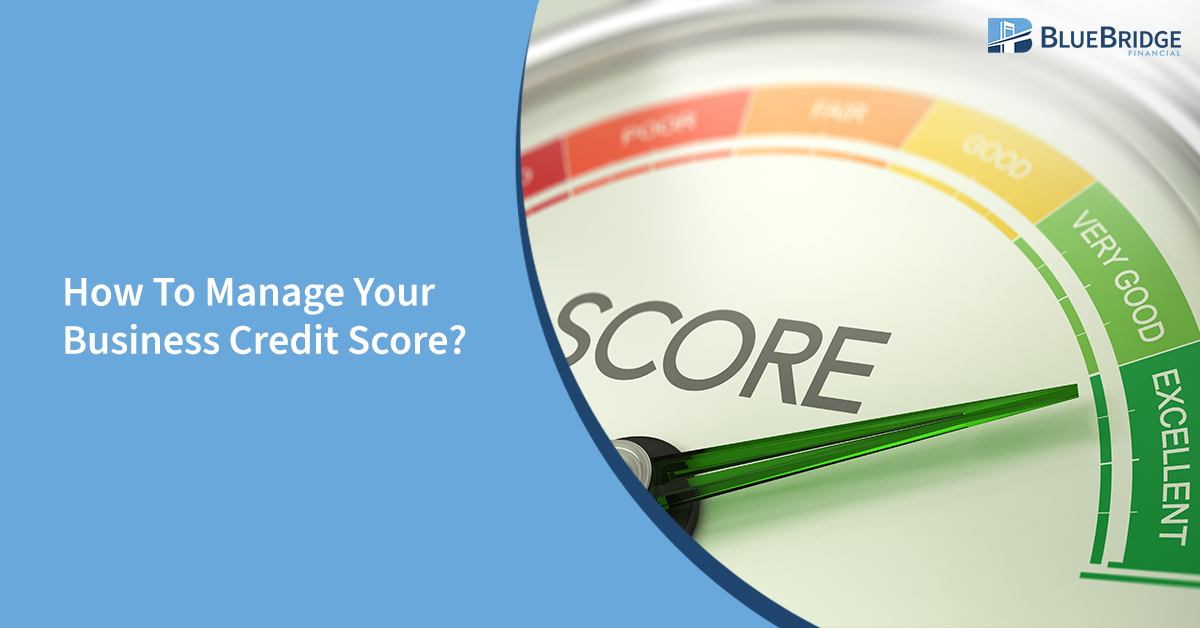How To Manage Your Business Credit Score
Strengthen Your Financial Foundation: Tips for Managing Your Business Credit Score
Does your business have a credit score? While not as widely known about as personal credit scores, a business score is an important and understated part of the commercial financing process. Access to credit can make or break the growth of your business, especially when it comes to equipment financing. In this article, we’ll explain what a business credit score is and the most effective ways to build and maintain this score.

What is a Business Credit Score?
Just as individuals have a personal credit score based on their handling of different types of debt, businesses can also have a credit score that measures the company’s creditworthiness.
Two of the three major credit bureaus that provide consumer credit reporting, Equifax and Experian, also offer credit scores for businesses. Dun & Bradstreet provides the D-U-N-S Number, a type of business credit score.
While there is some variation in how business credit scores are calculated, they all generally take the following into consideration:
- On-time payment history
- Size of your company
- How long you’ve been in business
- Age of your oldest financial account
- Credit utilization (the percentage of available credit you’re using, such as $500 out of a $5,000 credit card limit)
- Established trade lines
- Risk of failure within your industry
What is a good credit score for a business?
Your personal credit score can range from 300-850, with the higher the number the better. Business score ranges can differ from personal scores, but the same rule applies–the higher the number, the better the score.
A business credit score only reflects on the business’s creditworthiness and risk to lenders, not the owner’s personal finances or personal credit score. Instead of using Social Security Numbers for identification, you can use your business name, address, and employer identification number (EIN) to obtain your business credit score.
Business credit scores are publicly available, but you may have to pay for access. You may also need to apply to the Business Credit bureaus to be tracked. Apply here for your D-U-N-S number.

How does your business credit score help you get equipment financing?
Just as having a good personal credit score helps you rent an apartment, get a loan, open a credit card, and more, a good business credit score and history can help you obtain equipment financing and other types of business loans. Lenders use your business credit history and score to determine whether or not to partner with you.
There are a variety of advantages to building your business credit in addition to maintaining strong personal credit. For example, you may be able to secure corp-only financing, which protects you, your family, and your personal credit from risk if your business should experience financial troubles. Learn more about how business credit scores work from Kyle Bergeron, Blue Bridge Financial’s SVP of Operations:
“As an equipment finance lender who focuses on serving small businesses, there are many different products and tools available to us when evaluating a business’ credit history. One of the primary tools we use is the PayNet report by Equifax. PayNet offers a clear and concise snapshot of the subject business’ borrowing history. Insight into the business’ payment performance, outstanding balances, and details on the structure of each individual loan or lease is vital to accurately measuring the risk associated with extending credit to that business. In the world of small business lending, speed is key and the PayNet report allows our credit team to make an accurate risk assessment in a matter of minutes. The information provided by PayNet has proven to be the most reliable of any available business credit report and PayNet has become the market standard in the equipment financing industry for the basis of making a smart and efficient credit decision.”

Tips For Building and Improving Your Business Credit Score
To get started with building and improving your business credit score, follow these steps and strategies:
- Legally register your business.
- Apply for your EIN and DUNS numbers.
- Use business bank accounts and credit cards to keep your business finances separate from your personal accounts.
- Pay your business’s bills on time or even early.
- Work with a lender like Blue Bridge who offers flexible payments and will work within your budget to make sure you don’t overextend yourself and can handle your monthly payments.
- Early payments can build your credit faster.
- Regularly review your business credit score to check for errors or signs of fraud.
- Establish credit with vendors and suppliers who report to the business credit reporting agencies.
- A good rule of thumb is to borrow responsibly–don’t take on more debt than your business can comfortably handle.
- It takes time to build business credit, so start early (before you need financing) and plan on a timeline of about 6-12 months.
About Blue Bridge Financial
Blue Bridge Financial is your experienced, nationwide equipment lender for all types of businesses. We can help you finance your next equipment purchase with individual, personalized consideration of every application and flexible monthly payments tailored to your budget. Contact us to learn more about our equipment financing options and start the application process.
Any Questions? We'd Love to Talk:
About the Author
Nick Devernis is the Vice President of Business Development with expertise in credit analysis and equipment financing. With over 6 years in equipment financing, he offers a wealth of knowledge to readers of Blue Bridge Financial’s blog. He currently oversees the California office and leads the Sales and Marketing departments. Nick’s role as Vice President of Business Development involves management of the sales team, relationship management, and developing strategic partnerships to drive inbound and outbound originations.p> LinkedIn Profile






